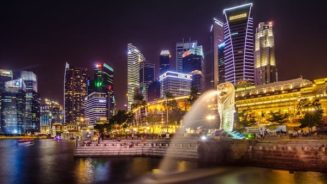The Southeast Asian city-state’s strong currency and high property prices have also helped to push it up the league table, the Economist Intelligence Unit noted in the latest of its twice-yearly reports.
Tokyo, which topped the list in 2013, has dropped to sixth place, in the wake of depreciation in the value of the yen, the report reveals.
Paris was in second place, followed by Oslo, Zurich, and Sydney.
This year’s list is dominated by European and Asian/Australasian cities, reflecting improving prices and currencies in both continents, the report’s authors noted.
Jon Copestake, editor of the report, said: “Improving sentiment in structurally-expensive European cities, combined with the continued rise of Asian hubs, mean that these two regions continue to supply most of the world’s most expensive cities.”
At the same time, he added, other Asian cities also continue to rank among the world’s cheapest: Mumbai, Karachi and Kathmandu, for example, came in near the bottom of the list.
The collapse of Syria’s currency and other issues in that besieged country placed Damascus among the world’s cheapest cities, the report reveals. It fell 11 places to tie with Kathmandu in 127th place.
Caracas, Venezuela was helped into the top 10 most expensive cities by what the report’s authors noted was an artificially high official exchange rate.
"In fact," they wrote, "the current official valuation of the bolivar, at 6.29 to the US dollar, is undermined by black market rates valuing the currency at less than one-tenth of this amount. As a result, adopting any parallel rate for the bolivar would immediately place Caracas as the world’s cheapest city rather than the current deceptive position it has as the joint sixth most expensive."
New York is baseline
The EIU’s Worldwide Cost of Living Survey uses New York's cost structure as a baseline against which to compare the cost of living of some 140 cities in 93 countries worldwide. It takes into account some 400 individual prices of goods and services, such as a 1kg loaf of bread, a single bottle of table wine, and a price of 20 branded cigarettes.
The survey is designed to calculate cost-of-living allowances and build compensation packages for expatriates and business travellers.
'Steady rather than spectacular'
On the subject of Singapore specifically, the report's authors note that its rise in "price prominence" has been "steady rather than spectacular" over the last few years.
"The city-state was 18th most expensive ten years ago, and has actually seen the cost of living compared with New York City decline over the last 12 months," they write in an introduction to their report.
"However, over the last decade, a 40% currency appreciation, coupled with solid price inflation, has consistently pushed Singapore up the ranking."
In addition to Singapore's high car-ownership-related taxes and "certificate of entitlement fees", which help to make transport costs there almost three times New York's rate, it is reliant on other countries for energy and water supplies, making it the third most expensive destination for utility costs; and it is "the priciest place in the world in which to buy clothes" owing to its proliferation of expensive malls and boutiques", which cater for "a wealthy and fashion-conscious consumer base".
To read a profile of Singapore, entitled Singapore: coping with the high price of success, click here.
To read a review of a new novel set among the wealthy denizens of Singapore, called Crazy Rich Asians, by Singapore-born Kevin Kwan, click here.




